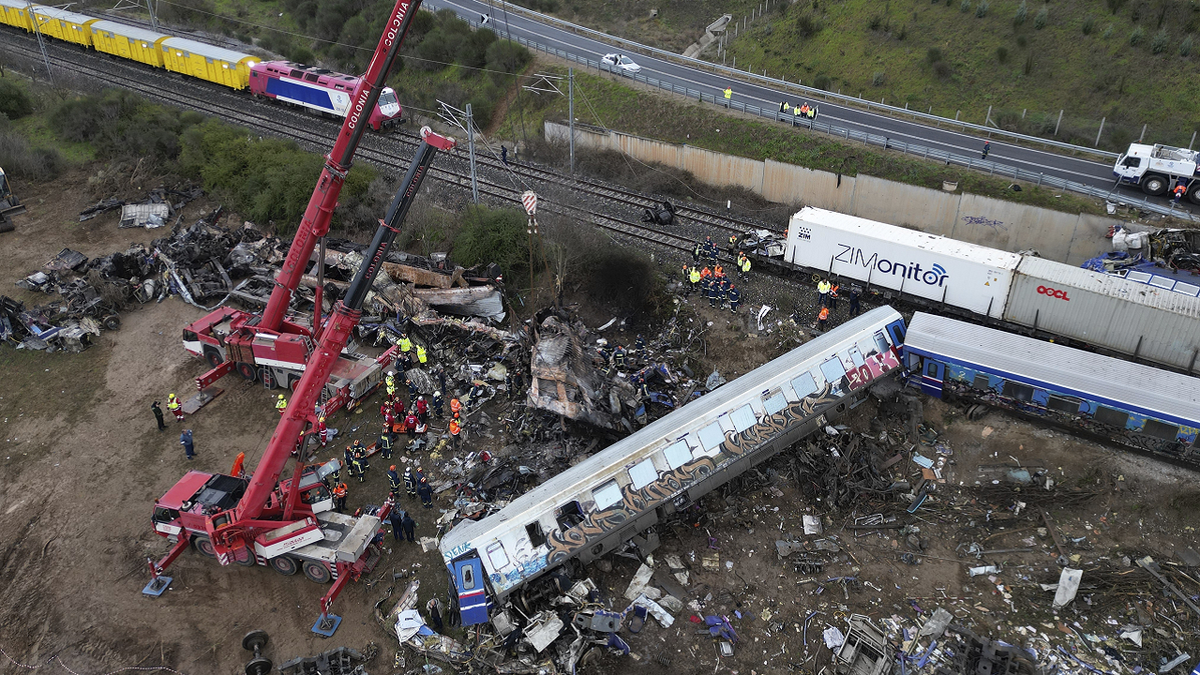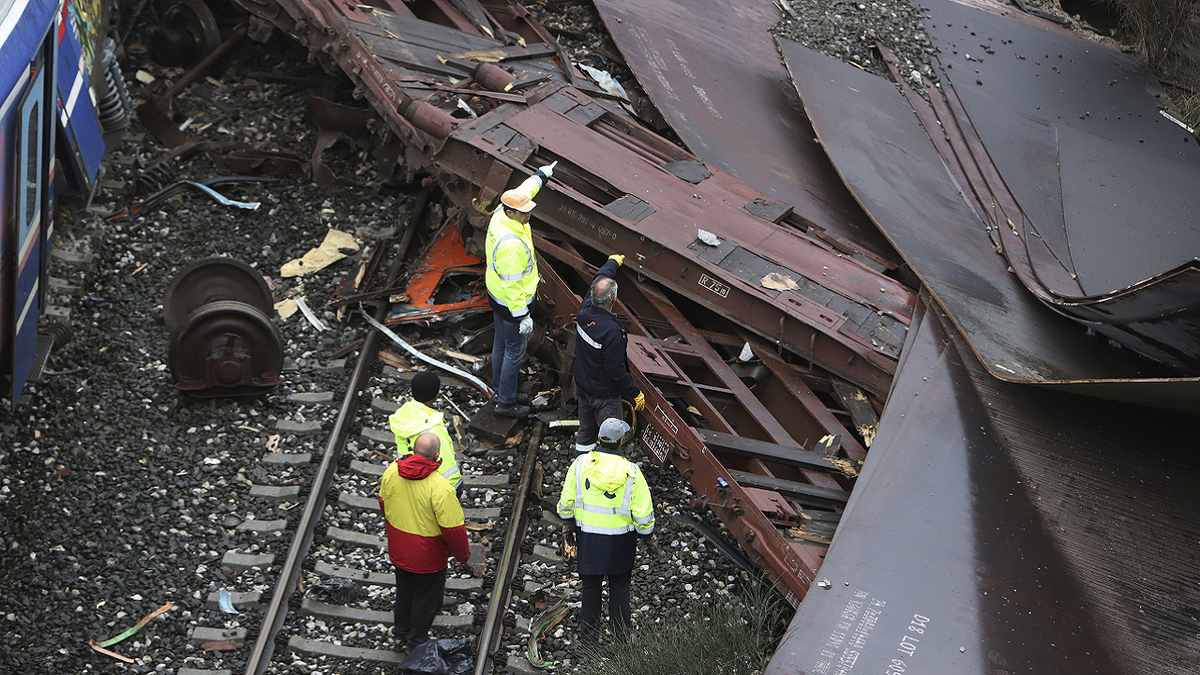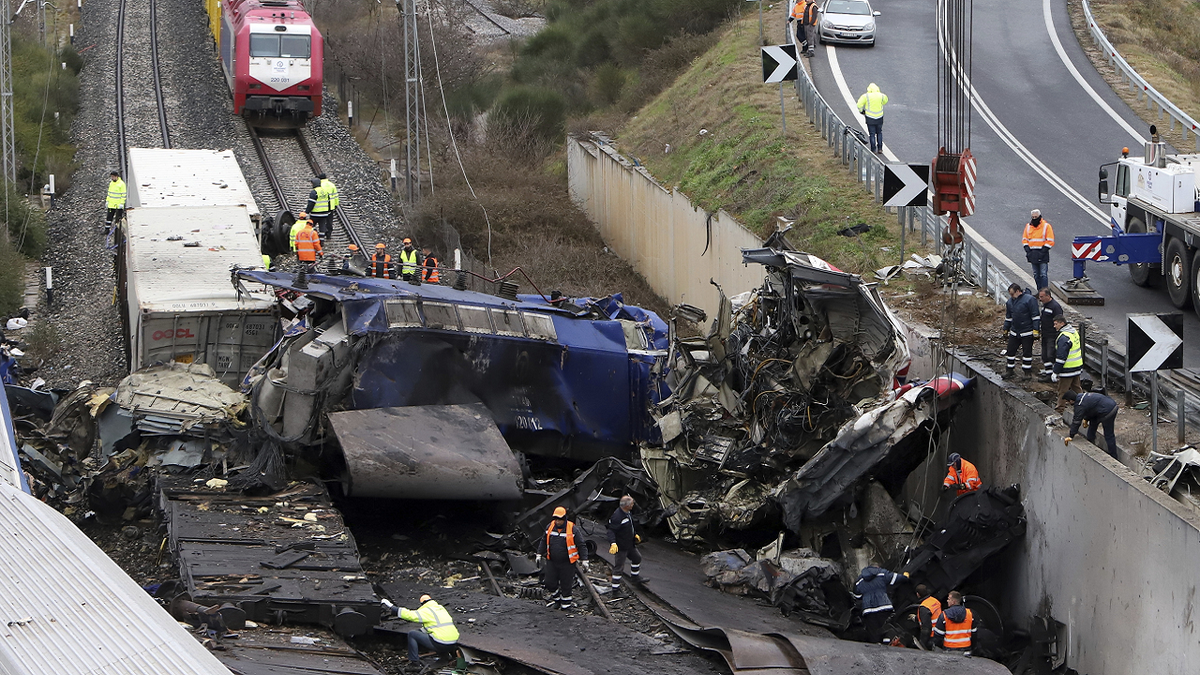Video captures aftermath of deadly Greece train crash
More than 50 people have been reported dead in Greece following a head-on collision late Tuesday. (Credit: Evangelo Sipsas/LOCAL NEWS X/TMX)
A transportation minister has resigned and a station manager has been arrested in Greece following a head-on crash between a passenger and freight train that has left at least 57 dead, with officials fearing the death toll will rise.
The developments surrounding the collision in Tempe come as Greek Prime Minister Kyriakos Mitsotakis said during a televised speech that "Everything in this tragedy points, unfortunately, mainly to human error."
As of Thursday, 57 people have been confirmed dead in the disaster and around 50 remain hospitalized in northern Greece. More than 300 people were onboard the train late Tuesday when the accident happened.
"We can see that there are more [bodies of] people there," Fire Service spokesman Yiannis Artopios reportedly told state television. "Unfortunately, they are in a very bad condition because of the collision."
MULTIPLE CARS DERAIL, BURST INTO FLAMES IN GREECE TRAIN CRASH

Firefighters and rescuers, supported by two cranes, search through the wreckage in Tempe on Thursday following the train collision. (AP/Vaggelis Kousioras)
The Larissa station manager arrested after the collision was charged Wednesday with multiple counts of manslaughter and causing serious physical harm through negligence, as a judicial inquiry tries to establish why the two trains were traveling in opposite directions on the same track.
But the 59-year-old worker in charge of signalling has denied any wrongdoing and is blaming the crash on a possible technical failure, according to the BBC.
2 DEAD NEAR GREECE AFTER OVERLOADED MIGRANT BOAT CAPSIZES

First responders are seen Thursday on the stretch of train tracks in northern Greece where the collision unfolded. (AP/Vaggelis Kousioras)
Transport Minister Kostas Karamanlis has resigned in the wake of the crash and his replacement has been ordered to set up an investigation into its cause.
"We will work so that the words ‘never again’... will not remain an empty pledge," Mitsotakis was quoted as saying during his televised address Wednesday.
The passenger train is owned by Italian private rail operator Hellenic Train
CLICK HERE TO GET THE FOX NEWS APP

The cause of the crash in Tempe, Greece, remains under investigation, but the country's prime minister says it appears to have happened as a result of "human error." (AP/Vaggelis Kousioras)
Railway workers’ associations, meanwhile, called strikes Thursday, halting national rail services and the subway in Athens.
They are protesting working conditions and what they described as a dangerous failure to modernize the Greek rail system due to a lack of public investment during the deep financial crisis that spanned most of the previous decade and brought Greece to the brink of bankruptcy.
The Associated Press contributed to this report.





















